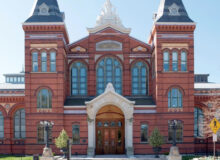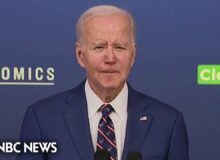(Nov. 18) By now, plenty of analysts have pointed to the copious evidence that President Trump’s active participation in Louisiana’s gubernatorial race drove up Democratic turnout far more than Republican turnout. Trump clearly is politically toxic in both urban communities and in professional suburbia, which is a big reason Republican candidate Eddie Rispone lost to Democrat John Bel Edwards.
What is mind-boggling for a New Orleans native, though, is just how badly the Trump-supported Rispone did in the Crescent City. The numbers defy belief.
An astonishing 90% of Big Easy voters cast ballots for Democrat Edwards over Rispone. This exceeds what most state political analysts long have thought would never, could never, not even possibly, be topped as the biggest wipeout in a modern race for governor.
Trump’s candidate Rispone did worse in New Orleans than neo-Nazi David Duke did in 1991.
Repeat: Rispone was outpolled by the modern poster boy for the Ku Klux Klan. Duke received 13% of the vote then to Rispone’s 10% last weekend. And the percentage of black residents in New Orleans in 1991 was 62%, compared to 60% today.
New Orleans is also a wealthier city now than it was then, because so much federal money and so many enterprising outsiders have moved in since Hurricane Katrina, while the poorest areas of the city remain abandoned. To the extent that black voters trend Democratic and higher-income ones trend Republican, these trends should make it impossible for today’s Republican to do worse than Duke. Yet that’s exactly what happened.

For those of us who were there in 1991, this is unfathomable. Even then, of course, New Orleans had long been a heavily Democratic city, but Republicans still usually won at least 20% of the vote within the city limits. Four years earlier, Republican Bob Livingston had won 22.5% in New Orleans for governor in an eight-way race, and Democrat Buddy Roemer (who two years later would switch parties and become a Republican) garnered another 14.5%.
But so extraordinary was the race featuring Duke, so high the turnout among black voters, and so unpopular was Duke within the city (his strength was in working-class suburbs and especially rural areas), that the overwhelming drubbing he received seemed impossible even to be approached, much less exceeded.
Until now.
Yes, Rispone was on the ballot rather than Trump. But Rispone attached himself to Trump at the hip all year, and Trump made in-state campaign appearances for Rispone three times in the final 11 days. The unusually high politics-related energy in the city on Election Day was almost entirely a reaction to, meaning against, Trump….
[The full column is here.]






